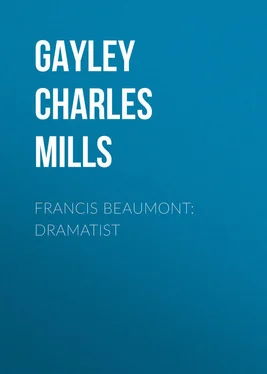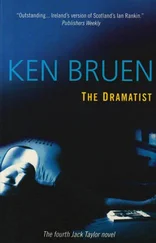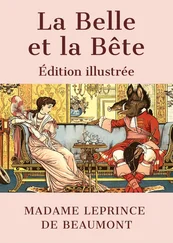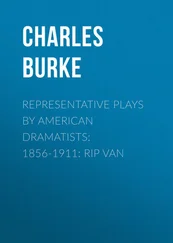Charles Gayley - Francis Beaumont - Dramatist
Здесь есть возможность читать онлайн «Charles Gayley - Francis Beaumont - Dramatist» — ознакомительный отрывок электронной книги совершенно бесплатно, а после прочтения отрывка купить полную версию. В некоторых случаях можно слушать аудио, скачать через торрент в формате fb2 и присутствует краткое содержание. Жанр: cinema_theatre, foreign_antique, foreign_prose, Биографии и Мемуары, на английском языке. Описание произведения, (предисловие) а так же отзывы посетителей доступны на портале библиотеки ЛибКат.
- Название:Francis Beaumont: Dramatist
- Автор:
- Жанр:
- Год:неизвестен
- ISBN:нет данных
- Рейтинг книги:5 / 5. Голосов: 1
-
Избранное:Добавить в избранное
- Отзывы:
-
Ваша оценка:
- 100
- 1
- 2
- 3
- 4
- 5
Francis Beaumont: Dramatist: краткое содержание, описание и аннотация
Предлагаем к чтению аннотацию, описание, краткое содержание или предисловие (зависит от того, что написал сам автор книги «Francis Beaumont: Dramatist»). Если вы не нашли необходимую информацию о книге — напишите в комментариях, мы постараемся отыскать её.
Francis Beaumont: Dramatist — читать онлайн ознакомительный отрывок
Ниже представлен текст книги, разбитый по страницам. Система сохранения места последней прочитанной страницы, позволяет с удобством читать онлайн бесплатно книгу «Francis Beaumont: Dramatist», без необходимости каждый раз заново искать на чём Вы остановились. Поставьте закладку, и сможете в любой момент перейти на страницу, на которой закончили чтение.
Интервал:
Закладка:
Can my approovement, sir, be worth your thankes,
Whose unknowne name, and Muse in swathing clowtes,
Is not yet growne to strength, among these rankes
To have a roome?
Now he is planning to write dramas himself; and it is pleasant to note with what modesty he touches upon the project:
But I must justifie what privately
I censur'd to you, my ambition is
(Even by my hopes and love to Poesie)
To live to perfect such a worke as this,
Clad in such elegant proprietie
Of words, including a morallitie, 56 56 Folio, 1647, 'mortallitie'; a misprint.
So sweete and profitable.
He is alluding to his not yet finished comedy, A Woman is a Weather-cocke . The youth must have been close to Beaumont as well as to Fletcher; he soon afterwards, 1609-10, played the leading part in their Coxcombe , – which, I think, was the earliest work planned and written by them in collaboration; and when, a little later, his own first comedy was acted by the Queen's Revels' Children no auditor of literary ear could have failed to detect, amid the manifest echoes of Chapman, Jonson, and Shakespeare, the flattering resemblance in diction, rhythm, and poetic fancy to the most characteristic features of Beaumont's style. This is very interesting, because in another dramatic composition Foure Playes in One , written in part by Fletcher, certain portions have so close a likeness to Beaumont's work, that until lately they have been mistakenly attributed to that poet and assigned to this early period of his career. The portions of The Foure Playes not written by Fletcher were written by no other than Nat. Field. And since in Field's Address to the Reader of the Weather-cocke , licensed for publication November 23, 1611, he still speaks as if the Weather-cocke were his only venture in play-writing, we may conclude that The Foure Playes in One was not put together before the end of 1611, or the beginning of 1612. That series need not, therefore, be considered in the present place; all the more so, since Beaumont had in all probability nothing directly to do with its composition. 57 57 See Chap. XXIII, below.
Of the other dramas written by Fletcher alone and assigned by critics to his earlier period, that is to say before 1610, or even 1611, the only one beside The Faithfull Shepheardesse that may with any degree of safety be admitted to consideration is a comedy of romance, manners, and humours, Monsieur Thomas . The romance is a delightful story of self-abnegating love. The father, Valentine, and the son Francisco, supposed to have been drowned long ago, and now known (if the texts had only printed the play as Fletcher wrote it) as Callidon, a guest of Valentine, love the same girl, the father's ward. This part of the play is executed with captivating grace. It shows that Fletcher had, from the first, an instinct for the dramatic handling of a complicated story, an eye for delicate and surprising situations, an appreciation of chivalric honour and genuine passion, and a fancy fertile and playful. In the subplot the manners are such as would appeal to a Fletcher not yet thirty years of age; and the humours are those of a student of the earlier plays of Ben Jonson, and of Marston – who ceased writing in 1607. It has indeed been asserted, but without much credibility, that "the notion of the panerotic Hylas," who must always "be courting wenches through key-holes," was taken from a character in Marston's Parasitaster , of 1606. 58 58 See Guskar, Anglia , XXVIII, XXIX.
The name of this Captain, Hylas, was in the mouth of Fletcher in those early days; he uses it again in his part of the Philaster , written in 1609 or 1610, and elsewhere. The snatches of song and the names of ballads are those of contemporary popularity between 1606 and 1609; and in two instances they are those of which Beaumont makes use in his Knight of the Burning Pestle of 1607. The play was acted, too, apparently by the same company, the Queen's Revels' Children, and in the same house as was Beaumont's. It could not have been played by them at "the Private House in Black Fryers" later than March 1608, unless they squeezed it into that last month of 1609 which serves as a telescope basket for so many of the plays which critics cannot satisfactorily date.
For my present purpose, which is to show how Fletcher, not assisted by Beaumont, wrote during his youth, it makes little difference whether Monsieur Thomas was written as early as 1608 or only before 1611. The fact is, however, that a line in the last scene, "Take her, Francisco, now no more young Callidon," shows clearly that Callidon, a name not occurring elsewhere in the play, and necessary to the dramatic complication, had been used by Fletcher in his first version; and when we put the names Callidon and Cellidée together (she is Francisco's belovèd) we are pointed at once to the source of the romantic plot – the Histoire de Celidée, Thamyre, et Calidon at the beginning of the Second Part of the Astrée of the Marquis D'Urfé. 59 59 Stiefel, Zeitschr. f. Vergl. Litt. , XII (1898), 248; Engl. Stud. , XXXVI; Hatcher, Anglia , Feb. 1907; and Macaulay, C. H. L. , VI, 156.
The First Part of this voluminous pastoral romance had been published, probably in 1609, in an edition which is lost; but a second edition, dedicated to Henri IV, who died May 14, 1610, appeared that year. Some of Fletcher's inspiration, as for the name and general characteristic of Hylas, was drawn from the First Part. The Second Part was not printed till later in 1610. It would, therefore, appear that Fletcher could not have written Monsieur Thomas before the latter date. On the other hand, as Dr. Upham 60 60 French Influence in English Literature , pp. 300, 308.
has indicated, the Astrée had been read as early as February 12, 1607, by Ben Jonson's friend, William Drummond, who, on that day, writes about it critically to Sir George Keith. If the First Part had been circulated in manuscript, and read by an Englishman, in 1607, it is not at all unlikely that the Second Part, too, of this most leisurely published romance, which did not get itself all into covers till 1647, had been read in manuscript by many men, French and English, long before its appearance in print, 1610; – may be by Fletcher himself, as early as 1608. Or he may have heard the story, as early as that, from some one who had read it. The fact that he alters some of the names, follows the plot but loosely, characterizes the personages not at all as if he had the original before him, and uses none of their diction, would favour the supposition that he is writing from hearsay, or from some second hand and condensed version of the story.
No matter what the exact date of composition, Monsieur Thomas is the one play beside The Faithfull Shepheardesse from which we may draw conclusions concerning the native tendencies of the young Fletcher. The subplot of Thomas, concocted with clever ease, and furnished with varied devices appropriate to comic effect – disguisings, mouse-traps, dupers duped, street-frolics and mock sentimental serenades, scaling-ladders, convents, and a blackamoor girl for a decoy-duck, – is conceived in a rollicking spirit and executed in sprightly conversational style. Sir Adolphus Ward says that "as a picture of manners it is excelled by few other Elizabethan comedies." I am sorry that I cannot agree; I call it low, or farcical comedy; and though the 'manners' be briskly and realistically imagined, I question their contemporary actuality, – even their dramatic probability. Amusing scapegraces like the hero of the title-part have existed in all periods of history; and fathers, who will not have their sons mollycoddles; and squires of dames, like the susceptible Hylas. But manners, to be dramatically probable, must reflect the contacts of possible characters in a definite period. And no one can maintain that the contact of these persons with the women of the play is characterized by possibility. Or that these manners could, even in the beginning of James I's reign, have characterized a perceptible percentage of actual Londoners. Thomas, whose humour it is to assume sanctimony for the purpose of vexing his father, and blasphemy for the purpose of teasing his sweetheart – racking that "maiden's tender ears with damns and devils," – is no more grotesque than many a contemporary embodiment of 'humour.' But what of his contacts with the "charming" Mary who "daily hopes his fair conversion" and has "a credit," and "loves where her modesty may live untainted"; and, then, that she may "laugh an hour" admits him to her bed-chamber, having substituted for herself a negro wench? And what of the contacts with his equally "modest" sister, Dorothy, who not only talks smut with him and with the "charming" Mary, but deems his fornication "fine sport" and would act it if she were a man? I fear that much reading of decadent drama sometimes impairs the critical perception. In making allowance for what masquerades as historical probability one frequently accepts human improbabilities, and condones what should be condemned – even from the dramatic point of view. I have found it so in my own case. With all its picaresque quality, its jovial 'humours' and its racy fun, this play is sheer stage-rubbish: it has no basis in the general life of the class it purports to represent, no basis in actual manners, nor in likelihood or poetry. Its basis is in the uncritical and, to say the least, irresponsible taste of a theatre-going Rump which enjoyed the spurious localization, and attribution to others, of the imaginings of its own heart.
Читать дальшеИнтервал:
Закладка:
Похожие книги на «Francis Beaumont: Dramatist»
Представляем Вашему вниманию похожие книги на «Francis Beaumont: Dramatist» списком для выбора. Мы отобрали схожую по названию и смыслу литературу в надежде предоставить читателям больше вариантов отыскать новые, интересные, ещё непрочитанные произведения.
Обсуждение, отзывы о книге «Francis Beaumont: Dramatist» и просто собственные мнения читателей. Оставьте ваши комментарии, напишите, что Вы думаете о произведении, его смысле или главных героях. Укажите что конкретно понравилось, а что нет, и почему Вы так считаете.












